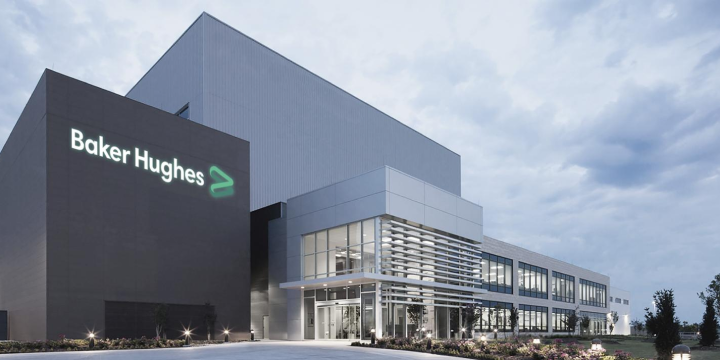· Corporate sustainability report outlines progress in key areas
· Company completed detailed materiality assessment using best practices, aligned to most widely recognized reporting frameworks
HOUSTON and LONDON – May 30, 2023 – Baker Hughes (NASDAQ: BKR), an energy technology company, announced Tuesday the release of its 2022 corporate sustainability report, which shows the company is on-track to meet its net-zero emissions by 2050 goal by reducing emissions by nearly one-third from its operating facilities through energy efficiency initiatives. The report also outlined the company’s progress toward driving more sustainable operations through improved performance in its environmental, social and governance (ESG) metrics.
“Last year was a year of transformation for Baker Hughes, highlighting sustainability as one of the key differentiators of our business. Against the backdrop of a challenging and complex global energy environment, I am proud that while we continue supporting our customers on their energy transition journeys, we have not lost sight of our goal to operate in a responsible and more sustainable way,” said Lorenzo Simonelli, chairman and CEO of Baker Hughes. “Sustainability has a clear role to play in advancing our purpose of taking energy forward, making it safer, cleaner and more efficient for people and the planet.”
“Our sustainability strategy underpins our broader commercial strategy and encompasses progress in key focus areas of people, planet and principles by weaving sustainability more deeply in our culture,” said Allyson Anderson Book, chief sustainability officer and sustainability steering team chair at Baker Hughes. “Additionally, we have driven data integrity, transparency, and controllership in our annual sustainability disclosure. I am particularly proud that in true spirit of putting people first, our report this year is more inclusive and accessible to readers of all abilities.”
Key highlights of Baker Hughes’ sustainability performance in 2022 include:
- Reduction in Scope 1 and Scope 2 greenhouse gas emissions by 28% compared to 2019 baseline year: In 2022, Baker Hughes achieved emissions reductions through energy efficiency initiatives, facility consolidations, and increased electricity from renewable and zero-carbon sources. Twenty-six percent of its electricity came from zero-emissions sources. The company achieved 31% reduction in emissions from all operated facilities as compared to baseline year 2019 due to energy conservation efforts, energy efficiency and sustainable standards for new buildings and construction.
- Materiality assessment and benchmarking for a cohesive sustainability strategy: Owing to the dynamic energy landscape, the company conducted a detailed materiality assessment – an important listening exercise – using best practices and aligned to the most widely recognized reporting frameworks, Global Reporting Initiative (GRI) and Sustainability Accounting Standards Board (SASB), to identify material gaps, buffer and mitigate energy transition risks and catalyze opportunities.
- Improvement in Diversity, Equity, and Inclusion (DEI) performance: People are at the heart of the company’s progress, and fresh perspectives, unique experiences and innovative ideas are critical to drive its innovation and competitiveness. The company enhanced its reporting data with over 20 new metrics to drive more transparency and was recognized for attracting, retaining, and developing talent. In June 2022, it published its first DEI report, showing that women represent 19.1% of all employees, and 36.1% of employees in the U.S. are people of color.
- Priority of employees’ safety and health: Baker Hughes is committed to safety, honesty and taking care of its people, its customers, and the communities in which it operates. In 2022, 100% of Baker Hughes security personnel and embedded security contractors completed human rights training, and it reported consistently strong occupational safety and health performance, including 217 perfect Health, Safety and Environment (HSE) days – ones without serious injuries, accidents, or harm to the environment.
- Increased community giving: In 2022, total charitable pledges and contributions through Baker Hughes Foundation was $75 million and a total of 27,181 volunteer service hours. In addition, the Foundation increased global contributions (outside North America) by 40%.
- “All In, Carbon Out.” Launched in 2021, “Carbon Out” is a unique, internal company-wide initiative to take carbon out of its operations and in 2022, it was expanded in breadth and depth of impact further operationalizing sustainability at Baker Hughes, advancing its net-zero emissions goals.
As one of the first companies in the industry to announce a net-zero emissions goal, Baker Hughes remains transparent in its reporting with two separate reviews of its annual sustainability report – internal audit as well as an independent accounting firm.
Baker Hughes corporate sustainability report is prepared in accordance with GRI-Core standards, SASB, references the United Nations Sustainable Development Goals, and Task Force on Climate-related Financial Disclosures (TCFD). Baker Hughes is also a participant of the UN Global Compact Initiative – a voluntary leadership platform for the development, implementation, and disclosure of responsible business practices.
Learn more about its sustainability commitments and performance by accessing the full 2022 Corporate Sustainability Report here.



